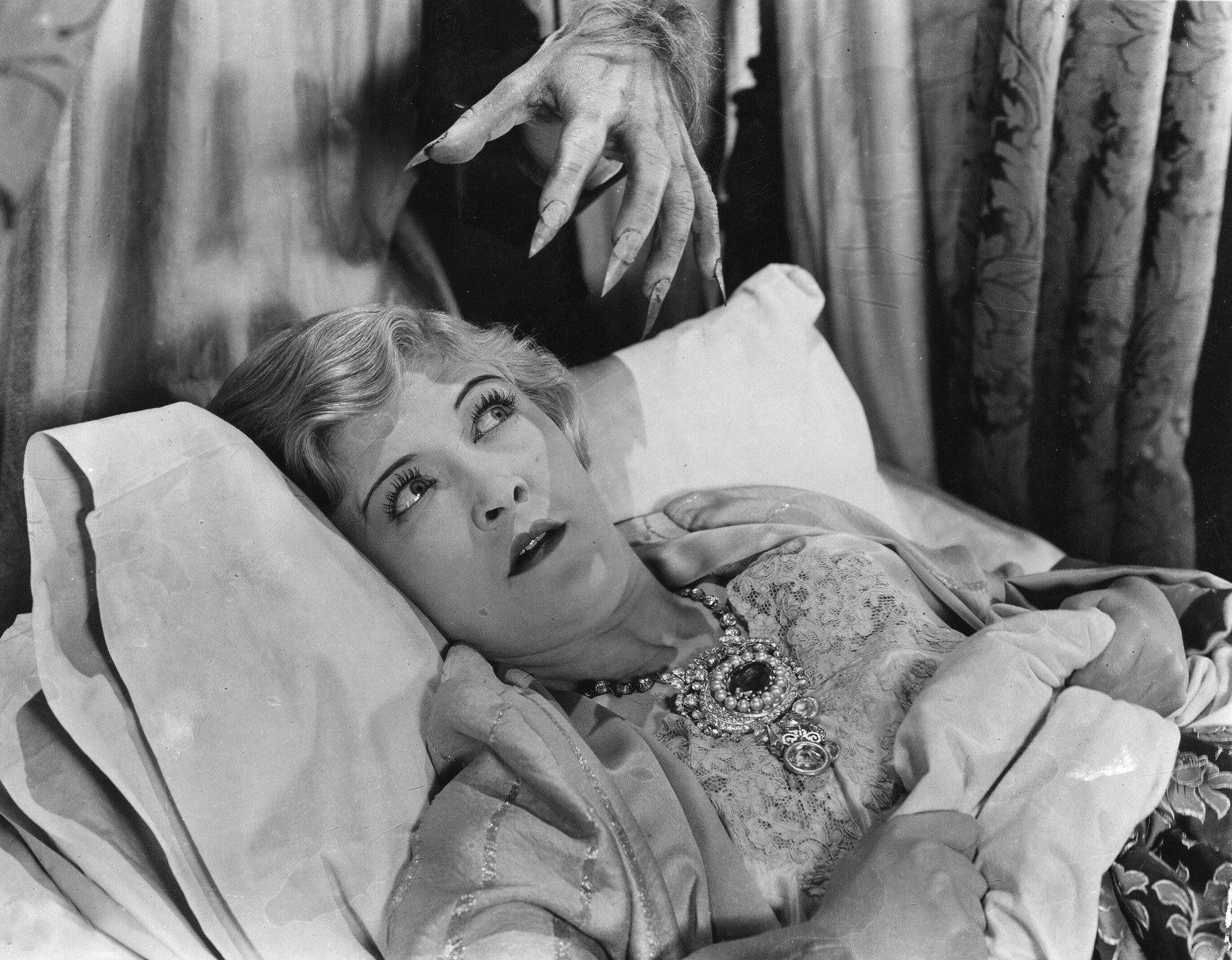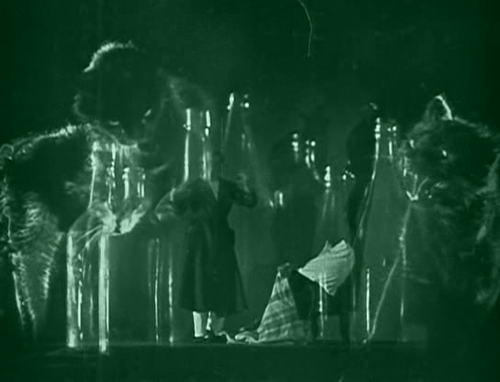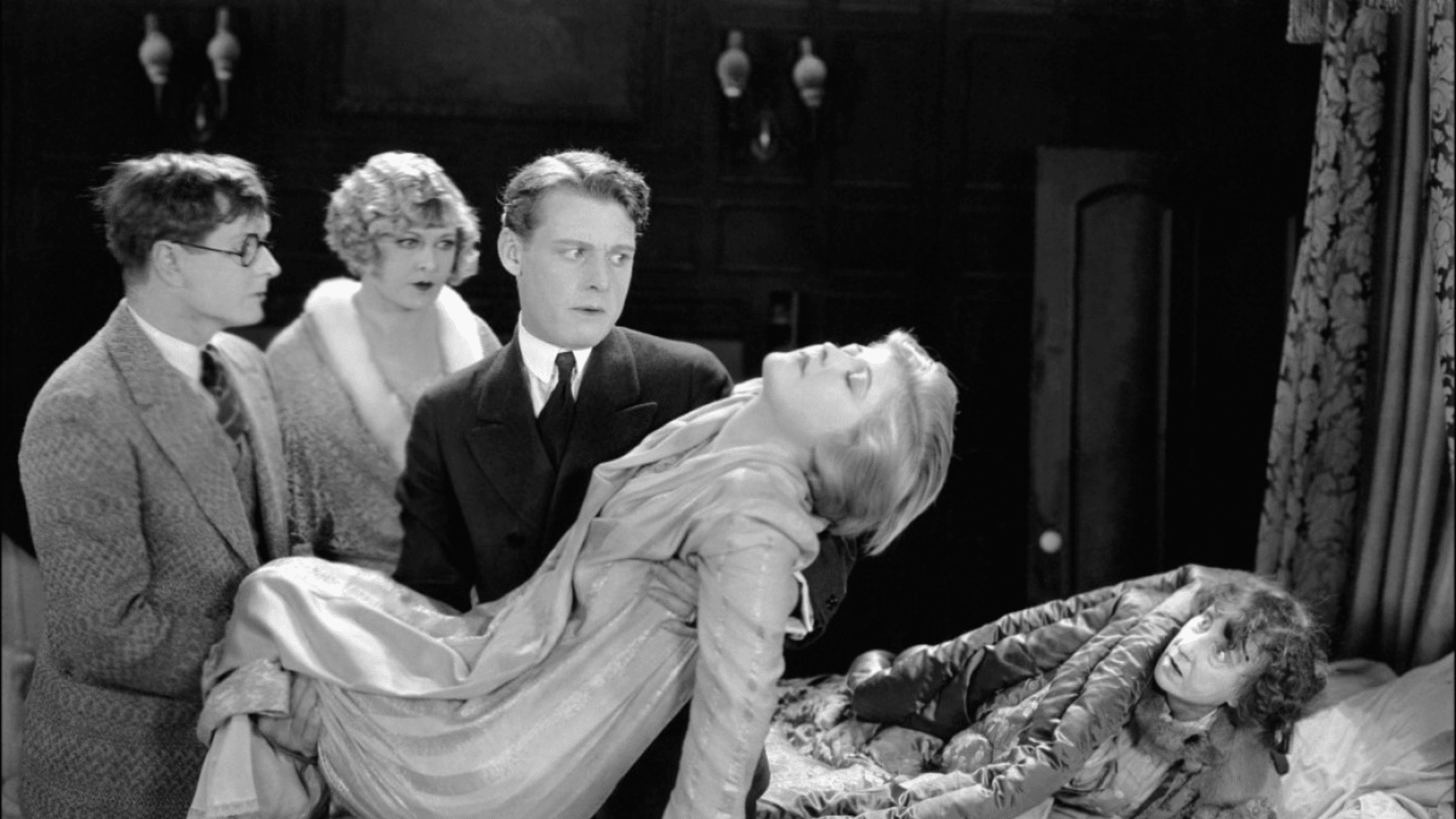The “old dark house” genre is as old as the movies themselves. Heck, it was even a popular format for radio dramas. Suspenseful and eerie, they use a dark stormy night and rickety old houses to prick at taboo notions, only to have the cold light of day reveal it all to be merely the machinations of some conniving hoodlum.
A prototype of Scooby-Doo. There’s never a monster, just Mister Jenkins from the bank. Reliable and fun, the genre flourished during the silent and early sound era because, like most horror films, they can be made cheaply. One studio that jumped on this was Universal Studios with the 1927 silent film, The Cat and the Canary.

Carl Laemmle recruited a German ex-pat Paul Leni to Universal make the movie that would launch Universal Studios into the horror franchise. Leni brought German expressionism to Hollywood and molded it to fit American sensibilities. Shrouding simplistic sets in shadows cut costs for lighting and set design, with the trade-off being a nightmarish, surreal quality.
Leni’s adaptation of the hit play by John Willard isn’t famous for its originality so much as how Leni and cinematographer Gilbert Warrenton brought German expressionism to Hollywood. Leni and Warrenton didn’t make a horror movie so much as a black comedy.
In a way, The Cat and the Canary is a strange beast. The inspiration for James Whale’s masterpiece The Old Dark House, Leni’s offering is an amusingly convoluted slap-stick filled with spooky imagery that, despite its many cliches of the time, plays with the form. The house may be old and creaky, but The Cat and the Canary certainly isn’t.
Cyrus West, an eccentric old millionaire, is driven to madness and eventually death by his greedy relatives surrounding him like a “cats around a canary.” Leni and Warrenton illustrate this beautifully with a shot of the old man surrounded by giant empty medicine bottles, with two black cats swatting at the tiny Cyrus. The image fades away to reveal the old dark house on a moonless night atop the hill.
But, unfortunately, old Cyrus has one more trick up his sleeve. His will isn’t to be read until twenty years after his death, at midnight. Twenty years later, midnight is approaching, and the old dark house is as creepy and haunted as ever, as the guests begin to arrive. The only constant in those twenty years is the ghoulish maid Mammy Pleasant (Martha Mattox).
Mammy Pleseant welcomes each guest while casting a suspicious and foreboding glance at them. Roger Crosby (Tully Marshall), West’s lawyer, is the first to arrive and is horrified to discover that the will, which has been locked in a safe for twenty years, has been opened.
The heroes arrive one by one: West’s nephews Harry (Arthur Edmund Carewe), Charlie (Forrest Stanley), and Paul (Creighton Hale), followed by Paul’s sister Susan (Flora Finch) and her niece Cecily (Gertrude Astor). Finally, and lastly, niece Annabelle (Laura La Plante).
The story is a hoot, adapted by Alfred A. Cohn and Walter Anthony; they pile one ludicrous plot element upon another. It becomes almost dizzying as each new complication arises. The relatives bicker and squabble until the clock strikes midnight, and the will is read. Annabelle gets the money, and the rest get nothing.
But wait! She must submit herself to a complete psychological evaluation and be declared sane, Cyrus’s retribution for being hounded all those years. If Annabelle is found mentally unfit, a person named in a secret envelope will inherit everything.
If all that wasn’t enough, there’s an escaped lunatic. A guard shows up to warn everyone. “He tears his victims apart like a cat attacking a canary!” Poor Annabelle, a big old drafty house, trapped with relatives who wish her mad so they can get the West fortune, and now there’s a madman on the loose on the grounds?

Leni leans into all of this with zeal. But, again, none of this is exactly new. Even the scene where Annabelle lays in bed, the newly discovered West Diamonds around her neck, as a secret panel at the head of the bed opens, and a pair of gnarly hands reaches out for her, is a hackneyed cliche by this point. But in Leni and Warrenton’s hands, there’s a new life to them, a sense of gleeful tomfoolery.
The actors, all veterans of the stage and screen, commit to their roles. Hale’s Paul, the love-struck coward who pines for Annabelle, plays his part to jittery perfection. La Plante, the plucky heroine trying to maintain her sanity during a night of chaos, walks the fine line between being the damsel in distress and a headstrong leading lady.
But the real star is Mattox as the gruesome maid. She wanders around the West estate like a ghost, haunting the estate. A role usually played by the likes of Boris Karloff or Bela Lugosi or an actor of similar typecasting, Mattox infuses the part with a sense of sinister mischievousness. Watching her, you get the feeling that she knows something is up, but it doesn’t concern her, so she will go about her night until all these jerks get out of her house.

Gothic and expressionistic imagery aside, Leni also plays with the title cards. One moment has Hale’s Paul running and shouting, “Ghosts!” The title card is in all caps, with spooky font, as it takes up the entire screen. Or when Finch and Astor are walking down the hall, Leni has the title card run backward with the conversation having been written starting at the bottom and with awkward spacing.
Like a Looney Tunes cartoon, Leni and Warrenton blend spooky imagery with comedic stylings that seem right at home. Take the moment when Finch’s Susan reaches her breaking point. She high tails it out of the house, through the woods, to the main road, and flags down a milk wagon. She tells the driver about the “ghosts,” to which the driver does a 1927 impersonation of Shaggy from Scooby-Doo, pulls her onto the wagon, and races like a bat out of hell. Motorcycle cops eventually pull over the two, and after Susan tells them why she ran, they laugh. “It’s about time you climbed onto a milk wagon, lady.”
The Cat and the Canary was a box office smash when it came out and set Universal on a path to becoming the iconic home of much of early horror and monster movies. Leni introduced German expressionism to Hollywood and molded it, making it more commercially viable and accessible to the masses.
I think people who’ve never seen a movie from the genre, or even a silent film, would enjoy it. Though, in some ways, to really appreciate The Cat and the Canary, you almost have to see a poorly done old dark house movie. Movies are a visual language; sometimes, it’s merely a matter of seeing someone use the perfect wording to make an old story come alive in new ways.
Either way, Leni’s The Cat and the Canary reminds us that just because a genre has been milked dry doesn’t mean you can’t find new life. But, you have to know how to tell it.
Images courtesy of Universal Pictures
Have strong thoughts about this piece you need to share? Or maybe there’s something else on your mind you’re wanting to talk about with fellow Fandomentals? Head on over to our Community server to join in the conversation!

